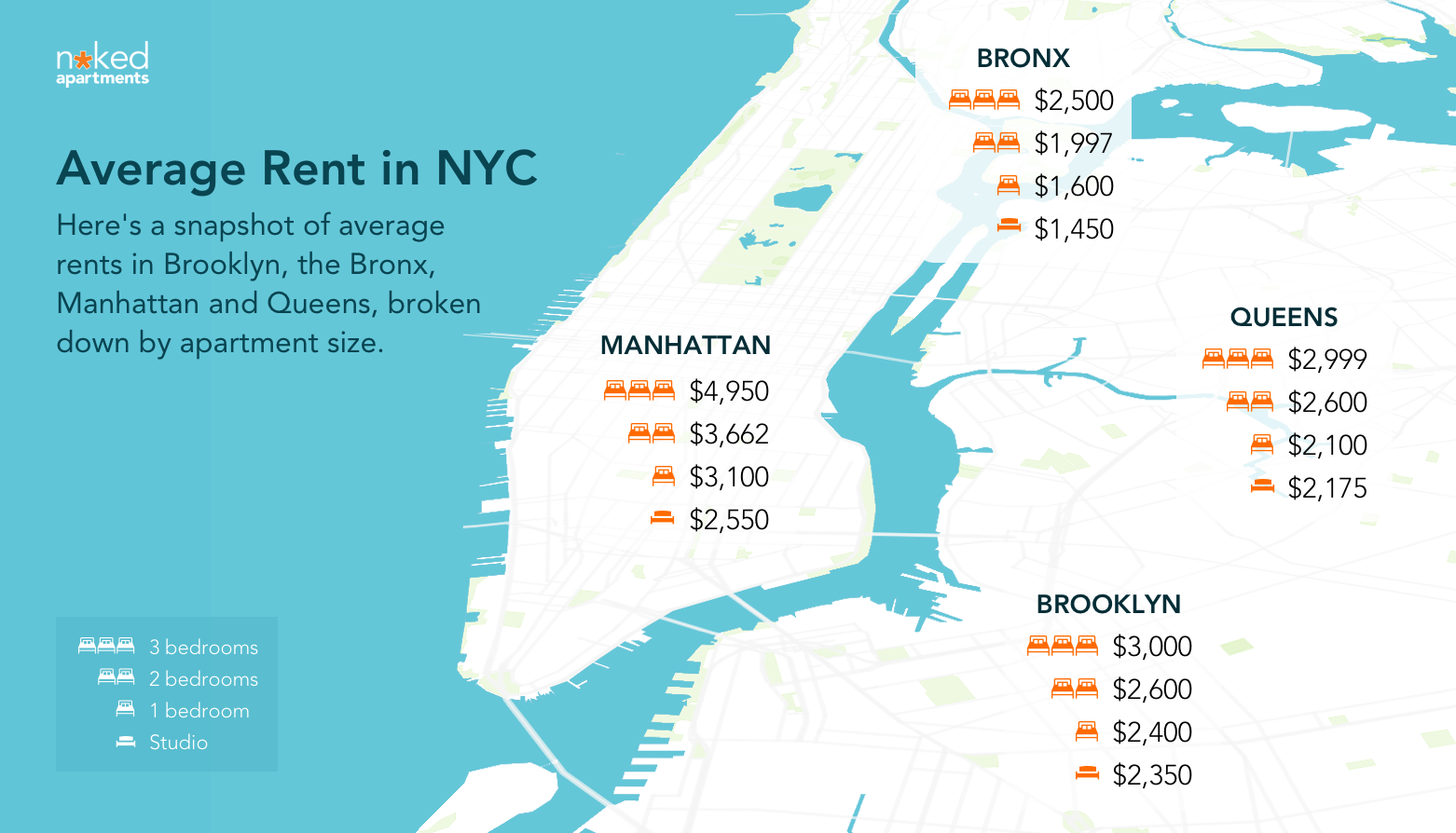Factors Influencing Electric Bills: Average Electric Bill Nyc 1 Bedroom Apartment

The average electric bill for a 1-bedroom apartment in NYC is influenced by a combination of factors that contribute to energy consumption. Understanding these factors can help residents make informed choices to reduce their energy use and potentially save money on their electricity bills.
Apartment Size
The size of an apartment is a significant factor in determining energy consumption. Larger apartments generally have more space to heat or cool, leading to higher energy usage. For example, a 1-bedroom apartment with 500 square feet will typically consume less energy than a 1-bedroom apartment with 700 square feet.
Appliance Usage
The types and frequency of appliance usage significantly impact electricity bills. Appliances like refrigerators, ovens, washing machines, and dryers consume considerable energy, especially when used frequently. The efficiency of these appliances also plays a role, with newer, energy-efficient models generally consuming less energy.
Building Efficiency
The energy efficiency of a building can significantly affect energy consumption. Buildings with well-insulated walls and ceilings, energy-efficient windows, and modern heating and cooling systems can reduce energy loss and lower electricity bills. Conversely, older buildings with poor insulation and outdated appliances may have higher energy consumption.
Seasonal Changes
Seasonal changes play a crucial role in energy consumption, especially in cities like NYC with distinct seasons. During the summer months, air conditioning usage increases, leading to higher electricity bills. Conversely, heating usage increases during the winter months, contributing to higher energy consumption.
Heating and Cooling Systems
The type of heating and cooling systems used in an apartment can significantly impact electricity bills. Central air conditioning systems generally consume more energy than window units, while heat pumps can be more energy-efficient than traditional furnaces.
Electricity Rates, Average electric bill nyc 1 bedroom apartment
Electricity rates vary depending on the utility company and the time of day. Some utilities offer tiered pricing, where electricity is cheaper during off-peak hours. Understanding these rate structures can help residents save money by using energy-intensive appliances during off-peak hours.
Tips for Reducing Electric Bills

Lowering your electric bill in a 1-bedroom apartment can be a rewarding journey, especially in a city like New York where energy costs can be significant. By making small changes to your daily routine and embracing energy-efficient practices, you can achieve substantial savings and contribute to a more sustainable lifestyle.
Minimizing Appliance Usage
Appliances are major energy consumers in any household. Understanding their energy consumption and implementing strategies to minimize their usage can have a considerable impact on your electric bill.
- Unplug electronics when not in use: Even when turned off, many electronics continue to draw power, a phenomenon known as “phantom load.” By unplugging chargers, TVs, and other devices when not in use, you can significantly reduce your energy consumption.
- Use energy-efficient appliances: When replacing old appliances, consider investing in energy-efficient models. Look for appliances with the Energy Star label, which indicates that they meet specific energy-saving standards.
- Wash clothes in cold water and air dry: Washing clothes in cold water and air drying them instead of using a dryer can save significant energy. Modern detergents are effective even in cold water, and air drying is a natural and energy-efficient way to dry clothes.
- Run full loads in the dishwasher and washing machine: Running appliances at full capacity can save energy compared to running them multiple times with smaller loads.
Optimizing Lighting
Lighting accounts for a significant portion of household energy consumption. Switching to energy-efficient lighting options and adjusting your lighting habits can make a noticeable difference.
- Replace incandescent bulbs with LED bulbs: LED bulbs are significantly more energy-efficient than traditional incandescent bulbs, using up to 80% less energy. They also last much longer, reducing the need for frequent replacements.
- Utilize natural light: Maximize natural light during the day by opening curtains and blinds. This can reduce your reliance on artificial light and save energy.
- Use timers and motion sensors: Install timers or motion sensors for outdoor lights to ensure they are only on when needed.
Adjusting Thermostat Settings
Heating and cooling are major energy consumers in apartments. By adjusting your thermostat settings and embracing energy-efficient practices, you can significantly reduce your energy usage and save money.
- Lower the thermostat in winter and raise it in summer: Even a few degrees can make a difference. Consider lowering the thermostat by a few degrees in the winter and raising it by a few degrees in the summer.
- Utilize programmable thermostats: Programmable thermostats allow you to set different temperatures for different times of the day, ensuring that your heating and cooling systems are only running when needed.
- Seal air leaks: Check for air leaks around windows and doors and seal them with weather stripping or caulk. This can help prevent heat loss in the winter and heat gain in the summer, improving the efficiency of your heating and cooling systems.
